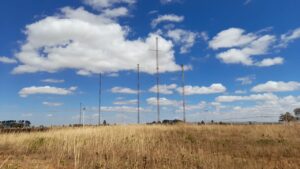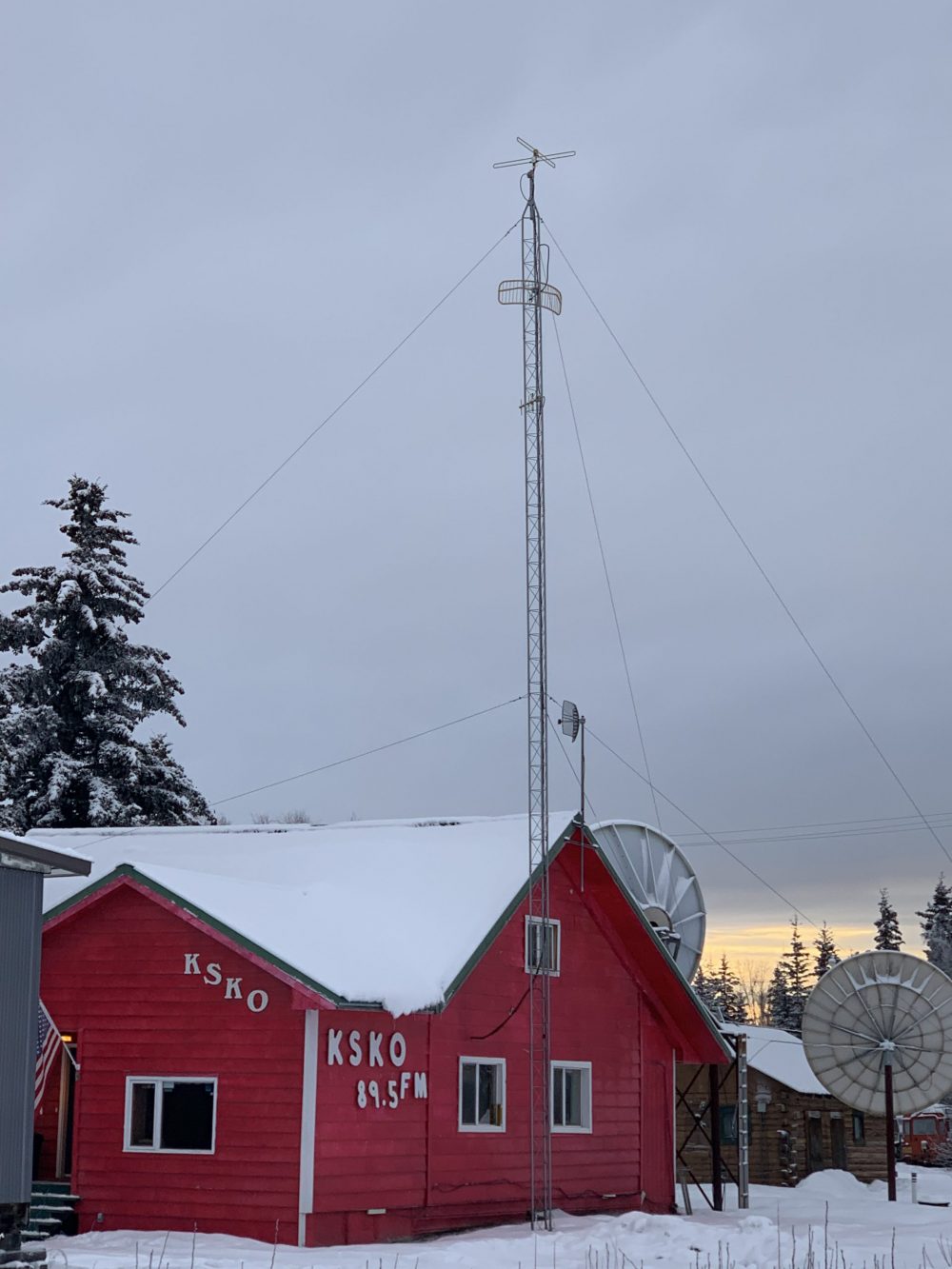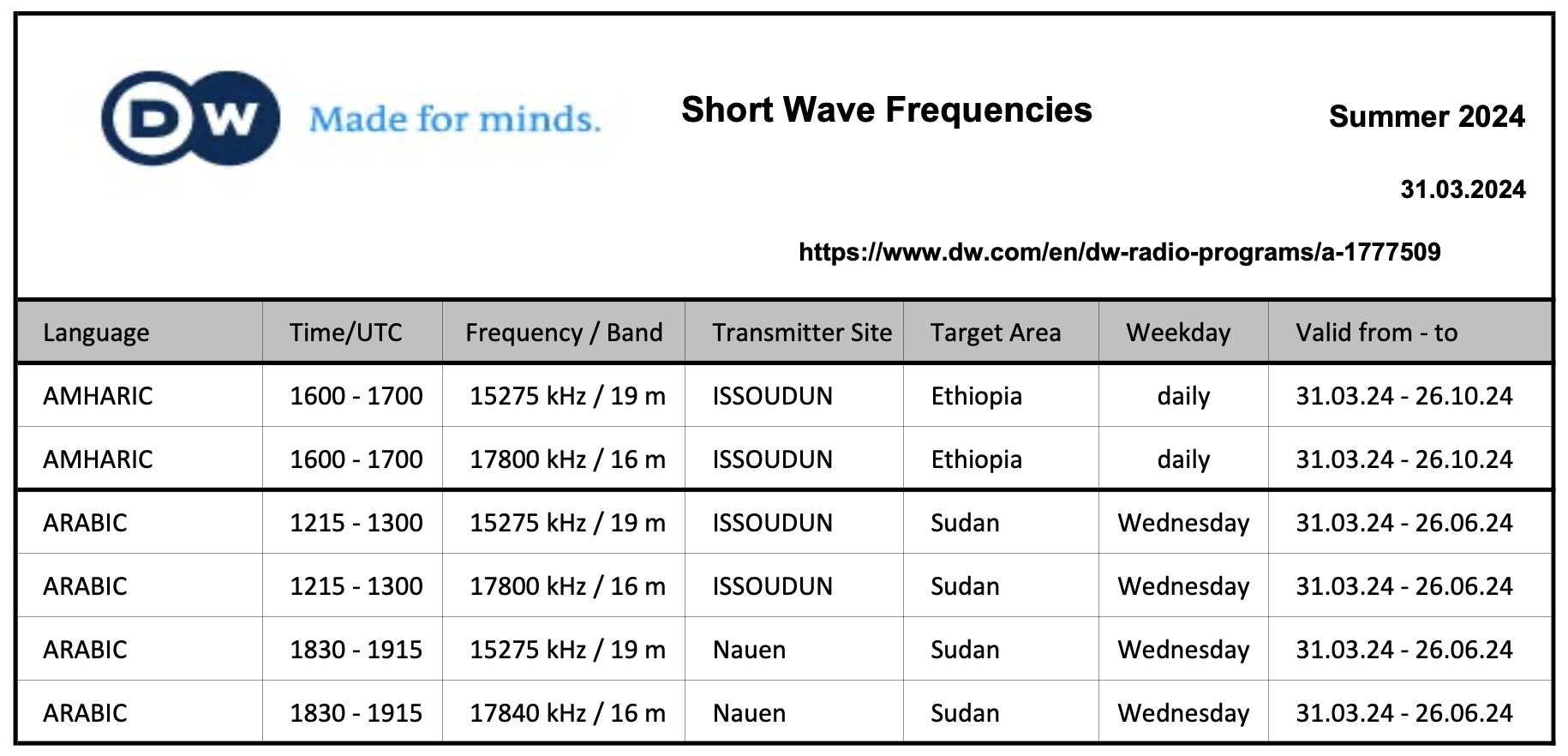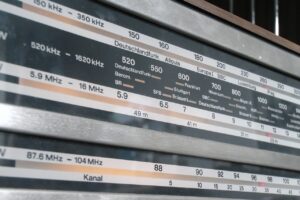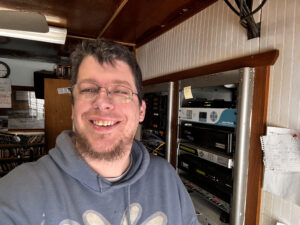
…… or as all the locals call it, “Talking to the aliens at the International Space Station.” You might ask yourself, what in the world? Well, I live in a very small, remote bush Alaska village, and my DXing is done outside, yes… even in winter. I’ve been here 3 1/2 years now, and when I first got here, 2 or 3 people seriously thought I was trying to talk to aliens.
I’m kinda “late” to the DXing game… starting seriously in 2014 when I was 30 years old but dabbling in it as young as 5th grade when I thought it was SO COOL I could hear WOWO 1190 Fort Wayne, Indiana, and KDKA 1020 Pittsburgh, Pennsylvania, in central Connecticut clear as a bell at night.
In like 6th grade, my uncle gave me a beautiful tabletop Firestone radio and hooked up a long wire about 100 feet long from my bedroom window to a tree in my yard… wow, WLW 700 Cincinnati every night in Connecticut, I was hooked!
When I discovered how radio waves traveled great distances and at the same time, listening to a really fun oldies station, Big D 103… I was like “This is for me,” and started my quest and desire to work in radio… something about speaking into a radio and being heard 10-20-30-40-50 miles away fascinated me to the umpteenth degree.
That was really before the internet, but I’m 40 now and have been working in radio for 20 years, still DXing mostly every day. Most of my money is spent on food and DXing accouterments.
I’ve had people ask me, especially those who in the small Alaskan village I’m in, “Why, especially in cold weather do you do this?”
I tell them a couple things… I moved up here in part for the hobby, so I’m going to take every advantage I can. There’s too much electrical noise for me to do it from home.
Sitting out here at the park is my “Happy place,” especially after a particularly trying day at work for any number of reasons; this is my place to escape and decompress while being by myself… peace and quiet.
Plus, it’s the magic of how these radio waves travel that got me interested in working in radio. I’ve never lost that childhood magic and wonderment of radio waves and how things work, even though I’m 40. I’m really 40 going on 12 anyways.
I like how when I know when and where to listen, I can hear some amazing things up here in Alaska that many people wouldn’t expect I’d hear at all or as well. There’s something to sitting at the park, especially on a nice summer afternoon, and getting a solid S9+60 or better signal on Radio Nacional de Amazonias 11780 kHz from 12,400 km, opening my radio’s audio filter to 8 kHz bandwidth, and listening to a football match, sounding like I’m right in the stadium or tuned to their music/listener interactive show “Eu de Cá, Você de Lá” hosted by Mauricio Rabelo and sound like I’m tuned in on a 50,000 Watt AM from 50 miles away.
And no, I don’t understand 99.5% of Portuguese, and I only know a few basic words I can speak. I’m way way outside of their target area, but RNA from Brazil being anywhere from “listenable” to “Banging in like a ton of lead bricks” is very common because I’m in just the right place for it.
And I do it all without the internet. Well, OK… I do use the schedule from www.eibispace.de.
All of that combines to fascinate me. And yes, remember… I know how it all works, and I still do a lot of internet streaming, but radio waves continue to fascinate me because it takes some twisting of knobs and fiddling with the antenna to get it just right.
And the fact that it just works and travels through the air is amazing to me.
I live in McGrath, Alaska, which is a community of 275 people that is 355 km NW of Anchorage, completely off the radio system. I manage the daily operations of KSKO Public Radio, an NPR member station, with 8 FM transmitters spread across several hundred miles of Alaska. You can also catch me every Friday on Spaceline Bulgaria’s 5900 kHz transmitter across Europe 2100-2200 UTC with a live relay of my very local KSKO Lunchtime show.
I moved up here for the job, but also knowing that from past experiences living 125 miles north of here 7 years ago, that DX would be amazing. And it’s far exceeded my expectations along with the knowledge and expectations of some of my broadcast engineer friends and station owner friends!

